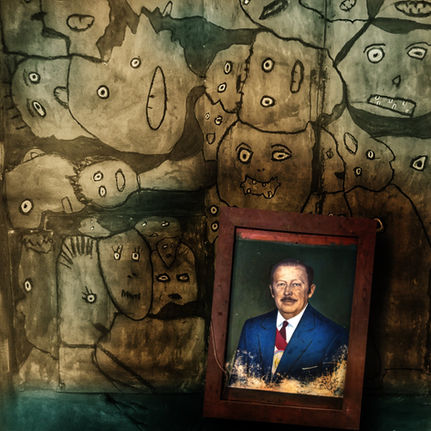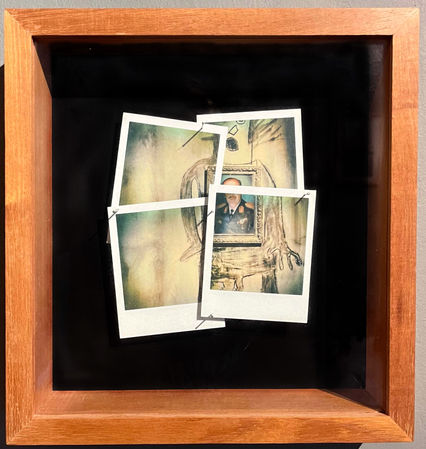
The Heritage
“Because apart from the adversaries, he also exists, and who knows his intentions? He always dreams that in a moment of carelessness - an unimaginably dark night is needed for this - he can slip away from the front lines and be elevated, due to his fighting experience above the combatants, as a referee”_cc781905-5cde-3194-bb3b- 136bad5cf58d_ -
Franz Kafka, 1920.
Accustomed to using photography as a trap-metaphor, Bernardo Puente provokes us to think about the future since the thirty-five years of authoritarian government of General Alfredo Stroessner (1954-1989) in Paraguay in an intimate way, in terms of legacies and wills.
Puente sends us to a space, to a room in the home. Next to the window that allows a subtle entry of light and illuminates the memories fixed on the wall, in the portraits. In the long term of a family, in everything that passes from generation to generation. In the games. In the anger and in the joys. In the silences and in the screams. In what it hides and in what it reveals. But this home is but a multiplicity of homes. Several homes in one, or a single one divided into a dozen rooms.
Maybe it's yours. And maybe not. The dictatorship, the arrests, the forced disappearance, the militarist authoritarianism the artist has experienced in at least three of those pieces of ranches, Buenos Aires, the family retirement home and Paraguay.
Puente's time trap expressed in the fake polaroids, refer to Hannah Arendt's writings on the Gap between the Past and the Future, on the exercise of a present that does not follow one another by the mere unidirectional flow of time, but frees constant battles between the weight of the past and the urgency of the future. On the role that men and women play in the construction of a memory and the urgent need to break the precepts of an inheritance.
Ana Barreto Valinotti
Asunción, October 2021.













